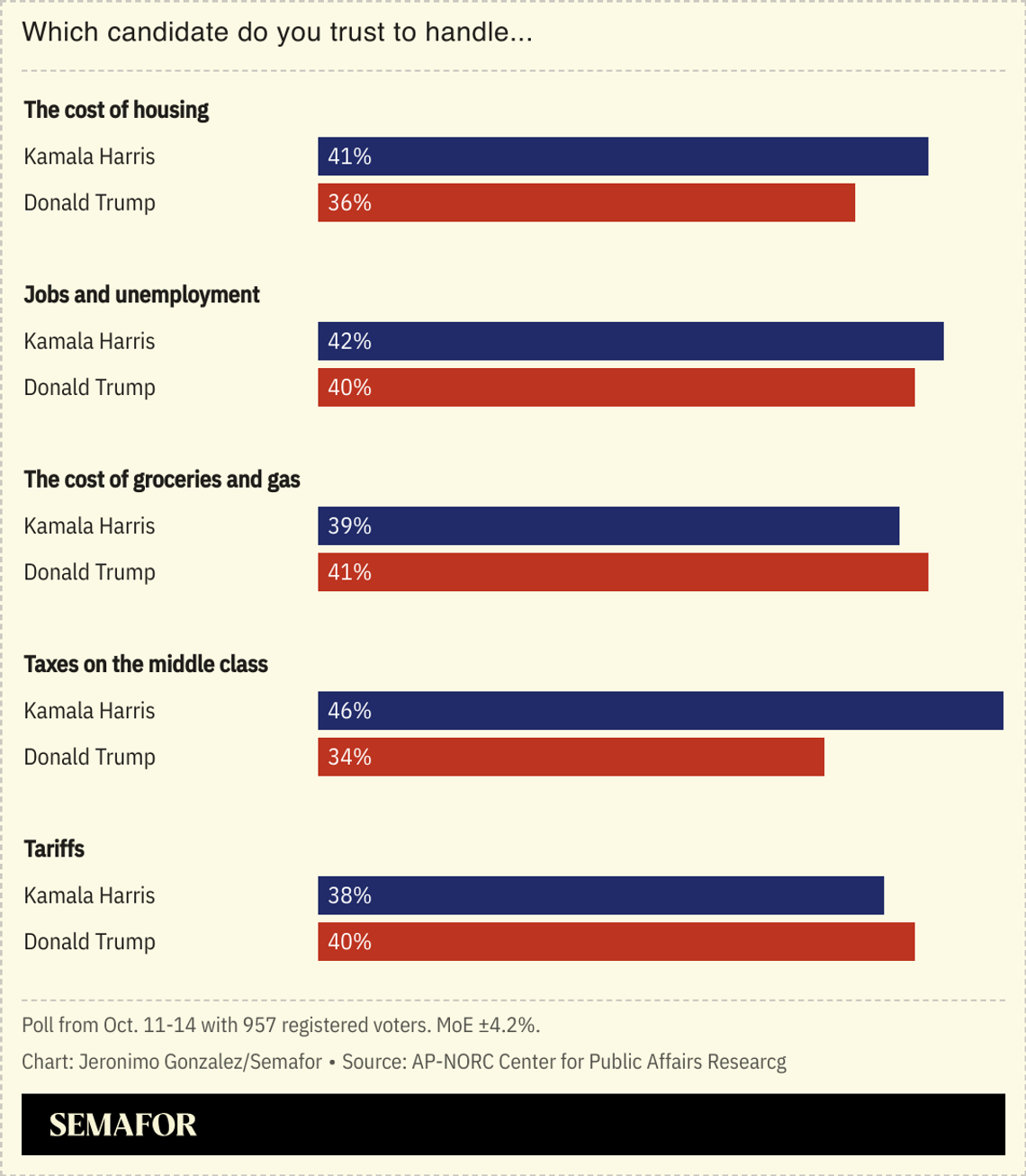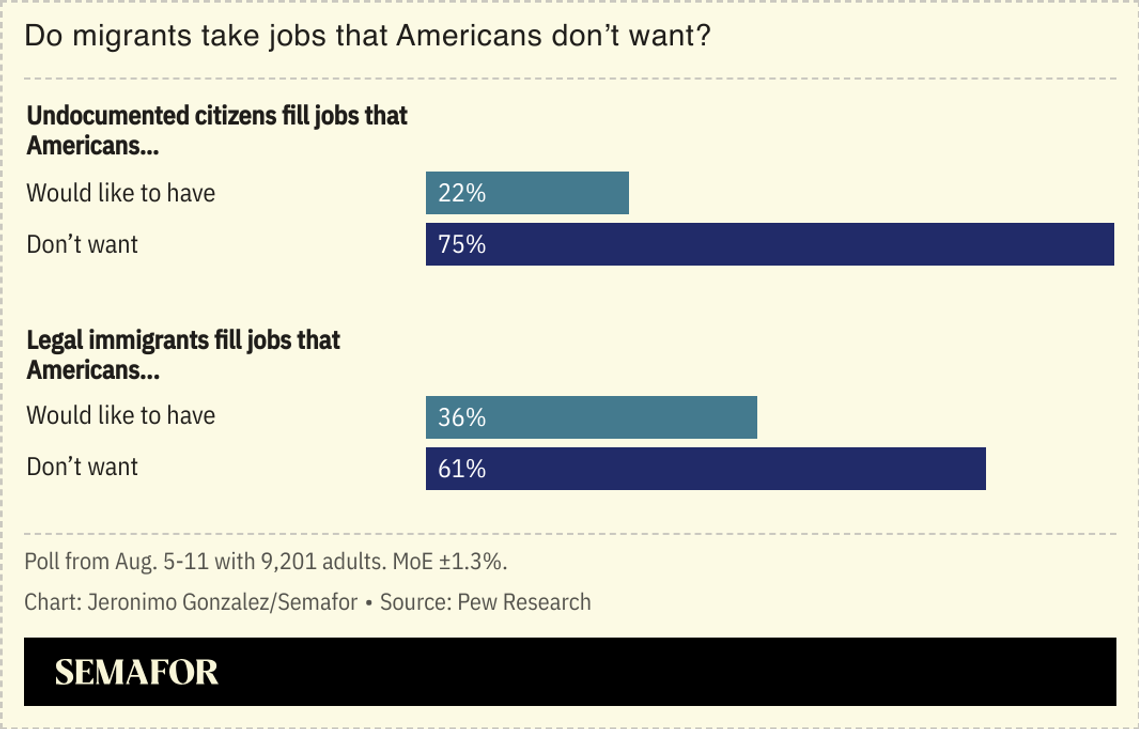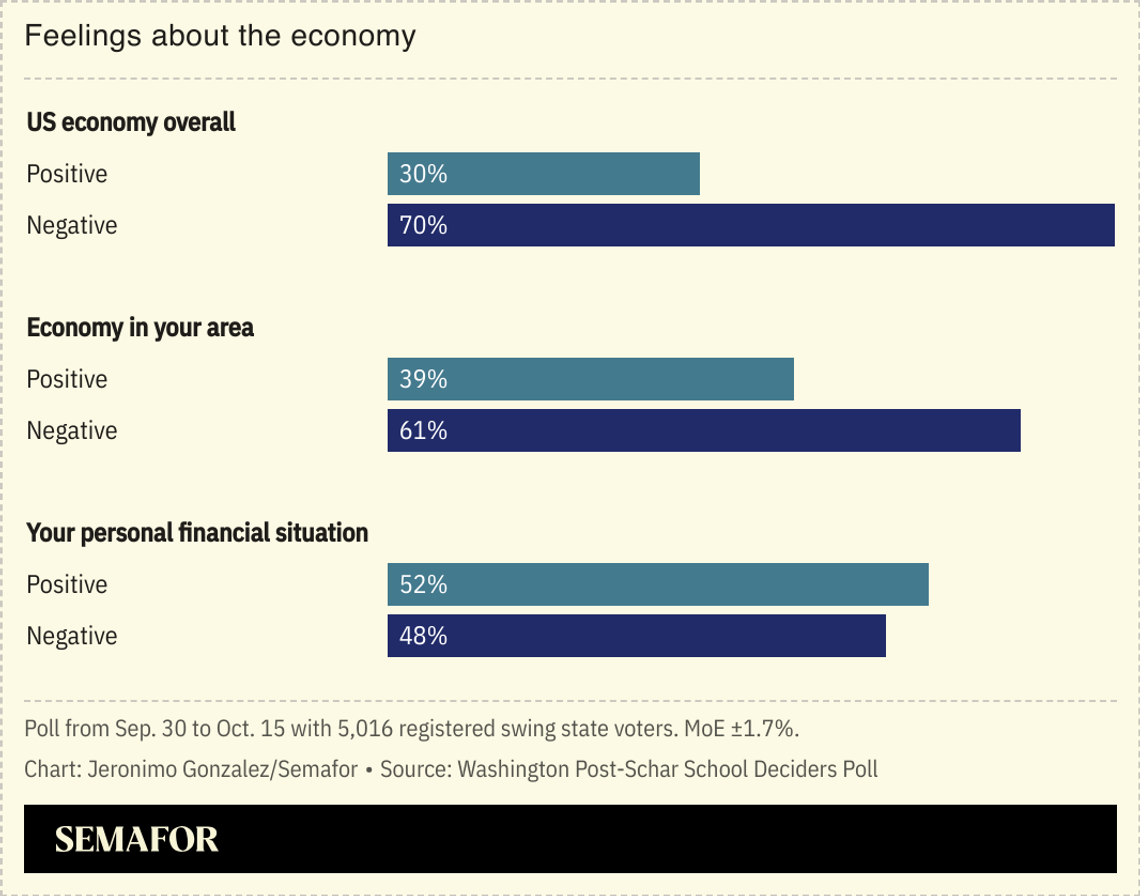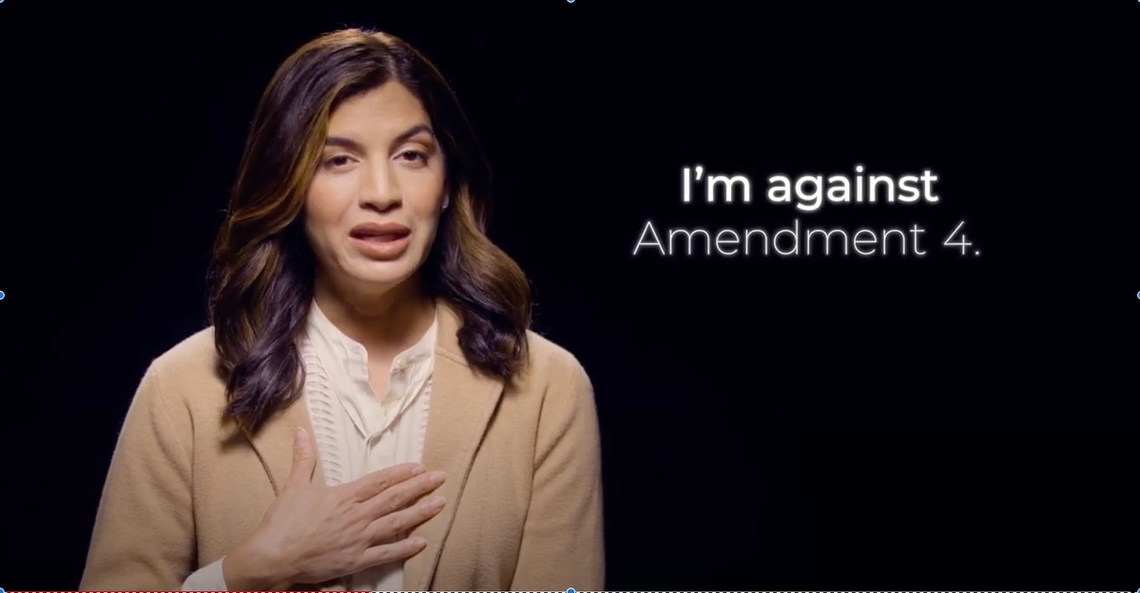 Polls This is a good sample for Harris overall, with a 10-point gap between her favorable rating and Trump’s, narrower than some other national polling this month. Among these voters, Harris has chipped away at Trump’s lead on a few basic economic questions. The Republican pivot away from tax cut debates — paid ads more often focus on immigration and LGBTQ issues — happened while the Harris campaign and Future Forward rained “middle class tax cut” ads on swing states, and voter sentiment about the economy ticked up. Other polling has found an advantage for Trump, but it has shrunk since the summer.  The dramatic rightward shift in how voters see immigration is a defining story of the election. It’s made Donald Trump’s long-held positions more popular; it’s turned old Democratic positions, which they confidently took during his presidency, into political liabilities. That’s frustrated immigrant rights’ groups, whose leaders believe that Democrats are not telling a positive story about their position or separating Trump’s plans to deport recently arrived asylum-seekers from his record of reducing legal immigration. Pew’s polling finds some evidence for that position, and reasons why Trump hasn’t suffered for it. One-quarter of Black adults say that illegal immigrants take jobs that Americans want, and 43% say that about legal immigrants. That’s who Trump was pitching at the Atlanta debate with Joe Biden, when he warned of “Black jobs” being taken — a line that Democrats treated as obviously ridiculous and offensive.  These results, from polling that shows a tied race in swing states and most voters retrospectively approving of the Trump years, find upside-down views of the economy’s strength. The macro economy has been strong for years, wages rose faster than inflation this year, and the unemployment rate (4.1%) is the lowest it’s been heading into an election in 24 years. Voters aren’t buying that rosy big-picture view, but they are more confident in their own economic security. The same thing happened in polls right before the 2022 midterms, when inflation was significantly higher but the job market had largely recovered from the pandemic. Ads - Bob Casey for Senate, “Bliss.” Every swing state Senate Democrat has run ahead of their presidential nominee, all year. The late wave of Republican ads against them are designed to change that, convincing Trump voters not to split their ballots. Casey, who’s highlighted his bipartisan bills throughout the campaign, dramatizes them here with a bipartisan family, a Democrat and Republican who agree on supporting their senator after he “sided with Trump to support NAFTA and put tariffs on China.”
- Engel for Arizona, “All Gone Up.” Non-incumbent Democrats weren’t around for the spending votes that Republicans (and economists) blame for higher inflation after 2020. That’s freed them up to blame Republicans for the cost of living, like Democrat Kirsten Engel does here. She doesn’t name spending supported by Rep. Juan Ciscomani; instead, she names (without citations) Republican legislation that could raise costs by restricting Social Security benefits or repealing the ACA.
- Vote No On 4 Florida, “Fix.” To beat Florida’s abortion rights amendment, which would guarantee a woman’s right to terminate a pregnancy in the state, opponents need to keep it from getting more than 60% of the vote. This spot’s aimed at supporters of abortion rights who favor restrictions, such as retaining parental consent for minors to have abortions. It’s a tactic Republican candidates have used in Senate and House races all year: Highlighting an unpopular implication of putting the right in the constitution. An unnamed “mother” warns that Amendment 4 would wipe out the state’s 48-year-old parental consent law: “I believe in a woman’s right to choose. I also believe in a mother’s right to parent.”
Scooped! Last week, I noticed an obviously specious video spreading quickly on X — a man who called himself “Matthew Metro” describing the abuse that his former teacher, Tim Walz, had inflicted on him. The fakery wasn’t very good, and the alleged graduate of Mankato West couldn’t even pronounce the southeast Minnesota city’s name correctly. I noted the fake and moved on, but was glad to see a few reporters dig up the backstory. In Wired, David Gilbert identified the Russian propaganda outlet that produced the video and a similarly slanderous fake that accused Kamala Harris of a hit-and-run; in The Washington Post, a power trio of reporters found the real Matthew Metro, shaken after “my privacy and my personal life” were exploited by bad actors. Next  - 14 days until the 2024 presidential election
- 56 days until the Electoral College votes
David RecommendsLast week, one of Rev. Sun Myung Moon’s sons stood before a crowd in Pennsylvania, “clutched a gold AR-15, and wore his signature crown of bullets.” That’s just the start of Amanda Moore’s report from the Rod of Iron Freedom Festival, the most rich and compelling account from an only-in-America movement founded after Sean Moon created his own ministry and Justin Moon built a firearms factory. This is not the year to write off “weird”-sounding political developments or movements. Better to pay close attention. |